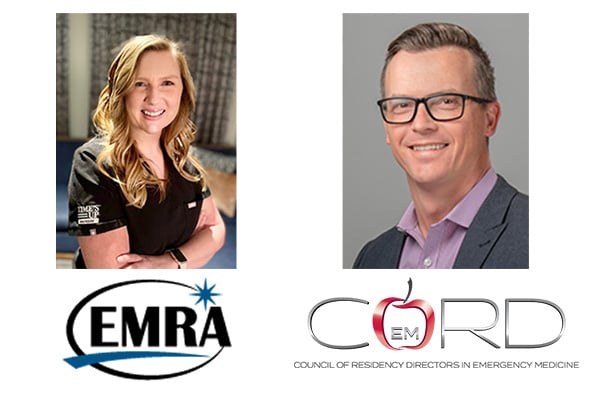Reflections on Interview Season
Grace Bunemann, MS4 - Campbell University School of Osteopathic Medicine
EMRA MSC Osteopathic Coordinator, 2021-2023
Earlier this year, I wrote an article on how to research residency programs for ERAS, so it’s only fitting to write an article now that my interview season has finished.
- Interviews are fun! Like most EM-bound students, I love meeting new people and learning about them. Interview season is 3+ months of doing just that. In comparison to friends who applied to other specialties, it seems that EM interviews are fairly relaxed. Most interviews consisted of 1-2 “typical” interview questions follow by questions about my hobbies and interests. I never felt like I got “grilled” and genuinely enjoyed all my interviews.
- Attend meet and greets. While meet and greets are not required, I went to every program that offered them. Typically held the night before an interview, they allowed me to gain insight into a program by seeing how the residents interact with each other in a relaxed social setting. Zoom fatigue is real, but ultimately, I am glad I attended these events because they have helped make my rank list.
- Have program-specific questions and standard questions. I recommend having specific questions in relation to unique attributes of the program or future career goals. Standard questions are helpful to ask at every program so you can compare answers across program. Below are the standard questions I asked:
- What do you think makes your program unique?
- What are you most proud of in your program?
- What brought you to this institution and why have you remained here since?
- Can you tell me about a time a resident had a life crisis during training (death in the family, illness, divorce, whatever) and how the program responded?
- Thanks to Dr. Glaucomflecken for recommending this on Twitter – people loved it and the mention of Dr. G!! I asked this of both residents and faculty each, I never received contradictory responses which was reassuring the answers were truthful.
- Don’t start interview season with rank list in mind. Based on the experiences of my friends and classmates who went into interview season with a pre-interview rank list, I am so glad I purposefully did not start ranking programs until my interviews concluded. During interview season, I mentally grouped programs together into the following categories: I want to train here (Gotta Have It), I would get great training here (Loved it), I’d get solid training here (Liked it). Those who started interview season with a pre-interview rank list, mentioned the challenge of adjusting the order based on their interview experiences.
- Debrief after each interview. Personally, I called my dad after each interview. We would start with my general gestalt and then go into further details. Choose someone who is a great listener and will ask probing questions to help elicit your full thoughts. If you don’t have a friend, family, member, or advisor, you can do this with voice memo recordings are a great option. The key is you want to hear the excitement, neutrality, or indifference in your voice.
- Stay organized. Google is your best friend!! Once I scheduled an interview, I immediately entered it into my Google calendar — at the interviews local time so google could calculate the time zone conversion for me! I also created a Google spreadsheet pre-interview to track various info about each program but it became quite tedious. Less is more!
- Second Looks. CORD recommendations for the upcoming application cycle have not been released but if second looks continue to be an option, I have found them helpful for clarity. I found that programs did a great job representing themselves via zoom; however, nothing can replace actually visiting a program. This year there were a variety of options for second looks: some programs offer formal visits (dinner, tour, etc…), some offered informal second looks (shadow shift, didactics, etc…), while others offered no opportunity to visit. Attend these events if you need additional clarity but do not feel pressured to attend.
- The perfect program exists for each of us. Ultimately, you have to choose the program that is best for you. For some that will be a big academic center and others a small community hospital – we all learn differently and should choose a program that best supports our style and pace. Additionally, It’s important to consider both objective and subjective information frequently throughout the interview season. My rank list is a 50:50 mix of objective data (class size, patient volume, location, etc) and vibes.
Related Content







